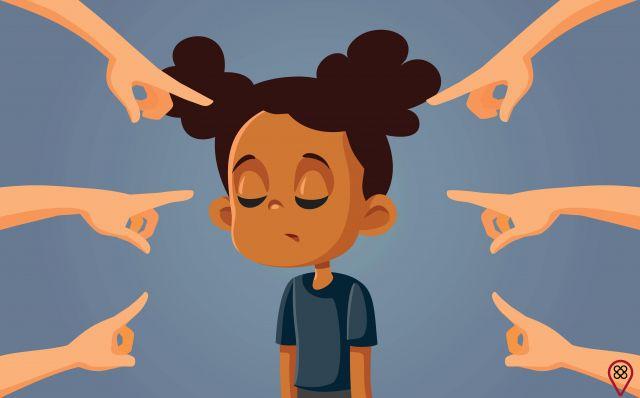
Many childhood traumas end up negatively impacting adult life. Be they good or bad experiences. For it is in childhood that some emotions such as anxiety, fear, panic, family problems can leave marks that become emotional triggers as adults.
Research has shown that emotional trauma in childhood causes psychological, family, social and economic implications. But there are some marks that are pretty common in almost every adult, from feeling abandoned to rejection.
The emotional triggers
It is in childhood that dreams, fears have a greater impact. A fear, when untreated in childhood, implies a greater fear in adulthood, which can somehow interfere with every moment of life. Therefore, childhood is considered an important phase and parents need to be aware of their children's emotional conditions so that they do not develop trauma or even diseases. Check out some common childhood marks that last into adulthood:
1 - Abandonment
Children, when they are small, feel constantly abandoned or fear that their parents and friends will leave them. This trauma still prevails in adulthood, when it is quite common to feel alone or to think that no one likes us and that we are going to be replaced by other people. In this case, for this brand not to accompany and disrupt people's lives, it is necessary to work on self-confidence.
2 - Humiliation
In childhood, phrases, actions can leave a deep mark that is humiliation. Even more so at this stage, where feeling loved and accepted is important. When parents humiliate, or even friends, it's a feeling that lasts for a long time. It's normal for a person to 'close' so they don't want to go through that again. So, be careful with any phrase or attitude with your child. A dialogue is always welcome.
3 - Uselessness
When parents don't pay much attention, or even don't play with their child, it's common for the child to find himself useless or think he's getting in the way and is useless. Talking about the child's importance to the parents' lives is essential for them to know that they are important regardless of the facts and to feel accepted in the circle they live.
4 – Lack of trust
Trust is very important for the child. Often parents promise something they are unable to deliver. And this attitude is negative, because in adolescence and adulthood they can feel distrust in relation to people and things. This lack of trust limits personal relationships, making the person always suspicious.
5 - Rejection
Rejection deeply marks a person's life. Since an illness, a problem, the way of behaving needs to be accepted or discussed. Leaving for humiliation, leaving the child embarrassed is leaving an emotional wound that is very difficult to work with later. Rejection disrupts a person's life, making them feel smaller in front of others and avoiding relationships out of fear of being rejected.
Educating children can be a very difficult task, but noticing any of these marks in your children, it is important to seek professional help to free them from these shackles as soon as possible, because no matter how attentive and dedicated, we can hardly be 100% adequate parents all the time. .
• Text written by Angelica Weise from the Eu Sem Fronteiras Team

























